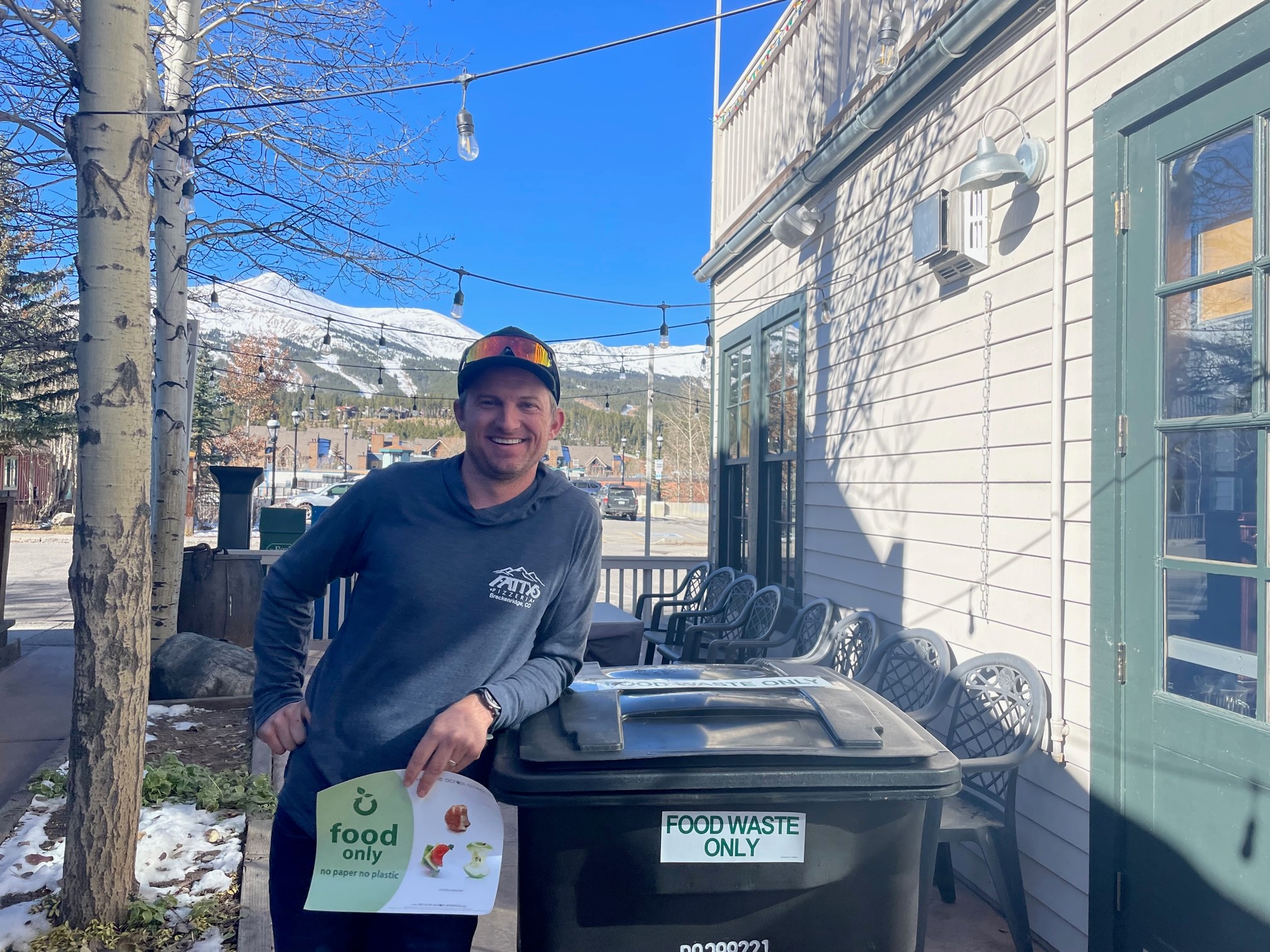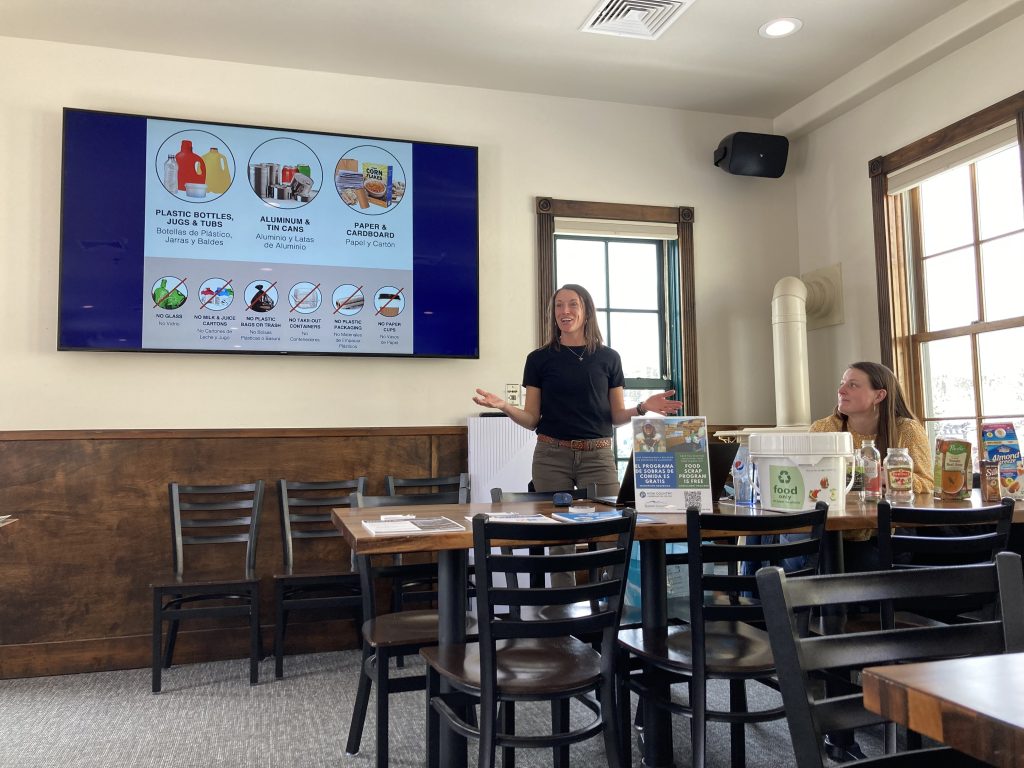
Dear Eartha, I collect my food scraps at home but the restaurant I work at doesn’t. I’d like to help them start composting. How do I start?
High five for composting your food scraps! You’ve joined over 2,300 Summit County residents who all use High Country Conservation Center’s (HC3) free Food Scrap Program. Just this year, we’ve collectively composted 233,860 pounds of food waste. And yes – restaurants can get in on the action, too. In fact, about 25 restaurants across the county are already composting their food scraps.
Why compost?
You probably know that composting is good for the planet. When food breaks down in a landfill, it releases methane, which is a greenhouse gas more powerful than carbon dioxide. In Summit County, waste accounts for 8% of our local greenhouse gas emissions, and that’s due to organic material anaerobically decomposing in the landfill. So composting is an easy way to reduce this climate pollution.
Composting is also great for our community. One of the coolest aspects of the local composting program is that all the food waste is processed in Summit County. That’s right – your banana peels are turned into fresh High County Compost at the Summit County Resource Allocation Park (SCRAP, our local landfill and recycling facility). This high-quality compost can be used as a nutrient-rich amendment to gardens, houseplants and lawns.
Did you know Summit County has a goal to increase our waste diversion rate to 40% by 2035? Our current diversion rate is only 20%. That means we only recycle or compost 20% of the waste we send to the SCRAP. To meet our goal, we all – residents, visitors, and businesses – need to recycle and compost more. This is especially important as the Summit County landfill is slated to close in 2056 and zoning for a new landfill is extremely difficult.
Start the conversation at work by sharing this information with your boss and colleagues. Once you’ve got their buy-in, then you can tackle how to get started.
Is composting easy?
Composting might seem daunting, but you’re already throwing stuff away. It’s really as simple as adding new bins and educating your staff on what goes where.
- Assess your space. Look at your waste area outside (where your trash and recycling dumpsters are located). Determine if you can add another container for food waste and how much food waste your business will produce.
- Contact your waste hauler to see if they offer food scrap collection. If you have any questions about haulers or need contact information, HC3 can help.
- Design your program. Place collection bins where food scraps will accumulate like prep areas, dishwasher, etc. Determine what type of bin you’ll use in each space and how to easily move the waste to your larger container outside.
- Educate employees. Host an employee training and include tips at staff meetings.
- Start collection service with your waste hauler.
- Keep it clean. Collect food waste only. Compostable and paper products go in the trash.
Need some extra guidance? HC3 offers free site visits, signage, and grant funding to supply bins, buckets or even cover a portion of monthly service costs. Learn more at HighCountryConservation.org.

What can you compost?
Only food scraps are accepted in our local program. This includes meat, bones, dairy, coffee grounds, and spoiled or processed foods. All of that can go straight in your compost container. However, all paper, plastic, and ‘compostable’ products like bags, coffee filters, and tea bags are not accepted. Why? Unfortunately, with our arid mountain environment, these products just do not break down, and those lightweight materials blow off the compost piles, creating litter – so please throw those items in the trash.
What if the food is still edible?
Not all food should end up in in the compost pile. Food that is still edible can be donated to Café Food Rescue. Café Food Rescue is a local organization that collects edible food and redistributes it local food pantries and community dinners. To donate your food or find out more information visit, CAFEfoodrecue.org.
In this season of Thanksgiving, I’m grateful for our community’s food scrap composting program and for everyone who participates in it. And if you’re not already composting, I’d be grateful if you and your business give it a try.
